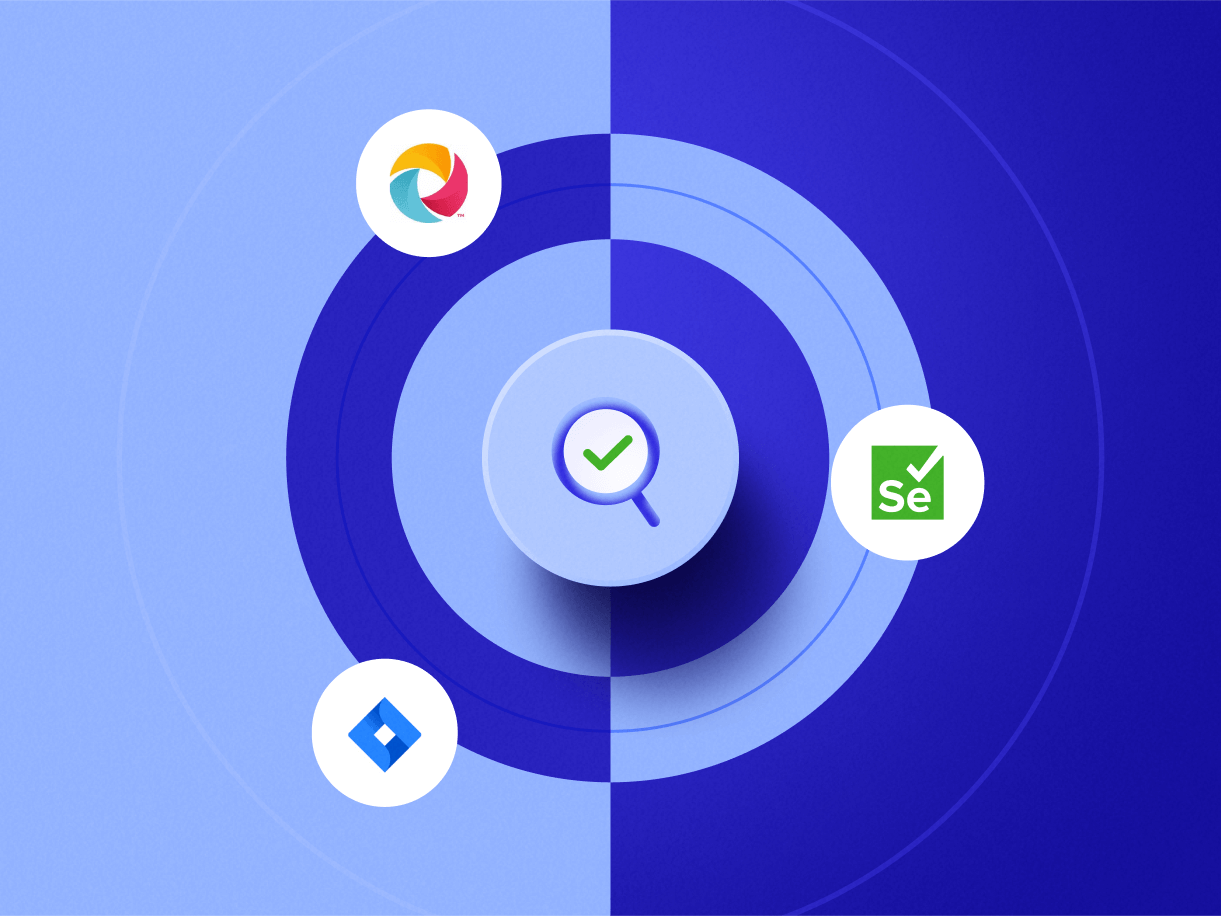Customized Software Development Companies: Unlock Potentials

What are Customized Software Development Companies?
Custom software development is the process of developing software applications tailored to meet individual client's specific requirements. Unlike off-the-shelf software, which is designed for general use, customized software is created to address the unique needs of a particular organization. A survey by Kissflow shows that nearly 85% of developers create customized enterprise software.
Custom software development companies have teams comprising software developers, project managers, designers, and other professionals collaborating to deliver tailored software solutions. The process of software development typically includes gathering requirements, designing and developing the software, testing, deploying, and providing ongoing maintenance and support. The software development company works closely with the client to ensure the software is precisely aligned with their needs and requirements. Grandview Research predicts 22.3% CAGR growth from 2022 to 2030 due to its rising popularity.
Key Benefits of Using a Custom Software Development Company:
As emerging markets and shifting consumer preferences continue to impact the business landscape, companies are under increasing pressure to leverage technology to maintain a competitive edge. In light of this, here are some key benefits that encourage businesses to opt for custom software development solutions.
Customization
Custom software is usually designed to meet the specific needs of an individual organization, which means that it can provide a tailored approach to addressing complex business problems. By leveraging the expertise of a software development team, businesses can ensure that their software aligns perfectly with their unique requirements, resulting in increased efficiency, productivity, and accuracy. A custom software solution can also give organizations an edge over competitors by providing functionalities unavailable in off-the-shelf products.
Scalability
Off-the-shelf software can often be limited in its ability to scale and grow with a business. In contrast, custom software can be specifically designed to accommodate the evolving needs of a business, providing a highly scalable solution that can adapt and change as the business expands. Additionally, custom software can be built using a modular architecture, enabling businesses to add new features and capabilities as needed without rebuilding the entire system. This approach to scalability can save businesses time and money in the long run, as they can continue to use and build on their customized software solution rather than continually replacing it with a new system.
Cost-effectiveness
Using a custom software development company can provide significant benefits in terms of cost-effectiveness. Firstly, outsourcing software development to a specialized company can help reduce costs associated with hiring and training in-house developers. Custom software development companies also have the expertise to quickly identify the most efficient and cost-effective development strategies, which can help reduce project costs and timelines. Additionally, custom software development companies typically use agile development methodologies, which allow for flexible and iterative development processes that can help reduce the risk of costly errors or delays. Overall, leveraging the expertise of a custom software development company can help organizations achieve their development goals more efficiently and at a lower cost, ultimately providing a competitive advantage.
Support and Maintenance
Custom software development firms possess the expertise to create software solutions tailored to a business's specific needs, ensuring their efficiency, flexibility, and scalability. Furthermore, their teams of highly skilled professionals can offer clients valuable insights and recommendations based on their experience across various projects. Ongoing support services are available to ensure the software remains functional and up-to-date, which can help businesses save time and resources in the long run. Such support services may include bug fixes, software updates, and troubleshooting.
Competitive Advantage
By creating custom software solutions tailored to meet a business's unique needs, these companies can provide features and functionalities that may not be available in off-the-shelf software. This can help businesses optimize their operations, streamline processes, and improve productivity, thereby gaining an edge over their competitors. Additionally, custom software solutions can be designed to integrate with other platforms and applications used by the business, enabling seamless workflows and data sharing.
Security
Off-the-shelf software may be vulnerable to security breaches, as hackers may be aware of its vulnerabilities and target it accordingly. However, custom software solutions are designed to meet the unique needs of a business, which can include security features that address specific vulnerabilities. Additionally, custom software development companies can perform rigorous testing and quality assurance processes to ensure the software is secure and meets industry standards and regulations. They can also provide ongoing maintenance and support services to keep the software secure and up-to-date, including security updates and patches.
Integration
Many businesses use various software solutions, such as customer relationship management systems, accounting software, and project management tools. However, these systems may not communicate with each other, leading to data silos and inefficient workflows. Custom software solutions can be designed to integrate with other systems and applications used by the business, enabling seamless workflows and data sharing. This can help businesses streamline processes, reduce manual data entry, and improve productivity. Additionally, custom software solutions can be designed to work with existing hardware, such as point-of-sale systems, barcode scanners, and inventory management systems.
Custom Software Development Methodologies
Custom software development methodologies refer to the set of processes that software development companies adopt to plan, design, build, and deploy software solutions. Every methodology has its own unique strengths and weaknesses and is suitable for various types of projects. The most common custom software development methodologies are Waterfall, Agile, Scrum, Kanban, and Lean. The methodology selection largely depends on the project's specific requirements. Comprehending the distinctions between these methodologies allows software development companies to determine the most suitable methodology for their projects.
Waterfall
Waterfall methodology is a linear approach to software development where each project phase is completed before moving on to the next. The methodology involves the following stages: requirement gathering, design, development, testing, deployment, and maintenance. The requirements are clearly defined at the beginning of the project, and changes to them are generally not allowed once the project has started. The waterfall approach is ideal for projects with well-defined requirements, fixed budgets, and timelines.
Agile
Agile is an iterative software development approach emphasizing flexibility and collaboration. The agile methodology involves breaking the project into smaller, more manageable chunks called sprints, with each sprint producing a working piece of software. The requirements are not fully defined at the beginning of the project but are refined through ongoing collaboration between the development team and the client. The agile approach is ideal for projects requiring frequent changes and where the requirements are likely to evolve during development.
Scrum
Scrum is a part of agile methodology that is particularly useful for complex software development projects. The methodology involves breaking the project into sprints, each lasting 2-4 weeks. Each sprint begins with the development team and client defining its goals. Then and at the end of each sprint, they review the progress and adjust the goals for the next sprint. The scrum approach is ideal for projects that require frequent changes, involve multiple stakeholders, and have a high level of complexity.
Kanban
Kanban is another agile methodology emphasizing continuous delivery and workflow optimization. The methodology involves creating a vision board that shows the status of each task in the development process, from planning to deployment. The goal is to move each task through the process as quickly and efficiently as possible. The Kanban approach is ideal for projects that require a high level of collaboration, continuous delivery, and process optimization.
Lean
Lean is a methodology that focuses on maximizing value while minimizing waste. The methodology involves identifying the features that provide the most value to the client and developing only those features. The goal is to deliver a working software solution as quickly as possible while minimizing the time and resources spent on features that do not provide value. The lean approach is ideal for projects with limited budgets and timelines, aiming to deliver a working solution quickly.
Types of Custom Software Development Companies:
There are several custom software development companies, each with strengths and focus areas. Here are some of the most popular options for custom software development companies:
Boutique firms
These companies are typically small and specialize in developing software solutions for specific industries or business functions. They often have a niche focus and provide highly specialized services to their clients. Boutique firms may have expertise in a particular technology, programming language, or framework and offer consulting services to help clients with strategy, product design, and project management. Due to their specialization, boutique firms can often provide a high level of customization and tailor their solutions to meet the unique needs of their clients.
Enterprise software firms
These companies focus on developing large-scale software solutions for large organizations. They often have deep expertise in specific technologies and are skilled at integrating with existing enterprise systems. Enterprise software firms can offer various services, including consulting, development, testing, deployment, and ongoing maintenance and support. Due to the complexity of the solutions they develop, enterprise software firms often have large teams of developers, project managers, and other experts who work together to deliver high-quality solutions that meet the specific needs of their clients.
Offshore development firms
These companies are based in other countries and provide software development services at a lower cost than domestic firms. Offshore development firms may specialize in certain technologies or industries and often have large teams of skilled developers who can work on multiple projects simultaneously. These companies typically offer various services, including consulting, development, testing, and ongoing maintenance and support. One of the main advantages of offshore development firms is their ability to provide cost-effective solutions without sacrificing quality.
Onshore development firms
These companies are based in the same country as their clients and provide software development services with a local presence. They often focus strongly on client communication and collaboration and can offer a range of services from consulting and development to testing and ongoing maintenance and support. Onshore development firms may specialize in certain industries or technologies and may have smaller teams of developers than offshore firms. One of the advantages of onshore development firms is their ability to provide localized solutions that consider specific market conditions, regulations, and cultural nuances.
Full-service firms
These companies provide end-to-end software development services, from initial planning to ongoing maintenance and support. They often have a wide range of expertise and can handle projects of varying sizes and complexity. Full-service firms may have teams of developers, designers, project managers, and other experts who work together to deliver high-quality solutions that meet the specific needs of their clients. One of the advantages of full-service firms is their ability to provide comprehensive solutions that consider all aspects of the development process, including ideation to deployment and beyond. However, the breadth of services offered by full-service firms may also result in higher costs than more specialized firms.
Webpoint is a full-service custom software development company that can help your organization with all aspects of the software development process. With a team of experienced developers, programmers, designers, and project managers, we can deliver high-quality solutions that meet the specific needs of your business. Whether you need a new custom software solution built from scratch or an existing solution updated and maintained, we have the expertise to do the job. Our comprehensive services include consulting, software development, testing, deployment, and ongoing maintenance and support. We use the latest technologies and frameworks to ensure your solution is scalable, secure, and optimized for performance. At Webpoint, we pride ourselves on our ability to provide end-to-end software development services that deliver real value to our clients. Connect with us today and learn more about how we can help you achieve your software development goals.
Frequently Asked Questions:
- Why would a company need custom software development?
Companies may require custom software development to solve unique business problems, improve efficiency, automate processes, or gain a competitive advantage.
- What is the process of custom software development?
The custom software development process usually involves a series of steps, including requirements gathering, software design, ideation, development, testing, deployment, and ongoing maintenance and support.
- How long does custom software development take?
The duration of custom software development can vary depending on the complexity of the solution and the scope of the project. It could range from a few weeks to several months or even years.
- What should I look for in a custom software development company?
While choosing a custom software development company, it is important to consider factors such as experience, expertise, reputation, communication, cost, and the ability to deliver high-quality solutions within the desired timeframe.
Conclusion
In conclusion, custom software development companies offer a range of services that can help businesses achieve their unique software development goals. Whether you need a new software solution built from scratch or an existing one updated and maintained, custom software development companies can provide end-to-end services that deliver real value to your organization. By using the latest technologies and frameworks, these companies can ensure that your solution is scalable, secure, and optimized for performance. The benefits of custom software development are numerous, including increased efficiency, improved productivity, cost savings, competitive advantage, better security, and easier integration with existing systems. Finally, understanding the different types of custom software development methodologies can help businesses choose the right approach for their needs. With the right custom software development company, businesses can unlock the full potential of software solutions tailored to their unique needs and achieve their business goals more efficiently and effectively.

